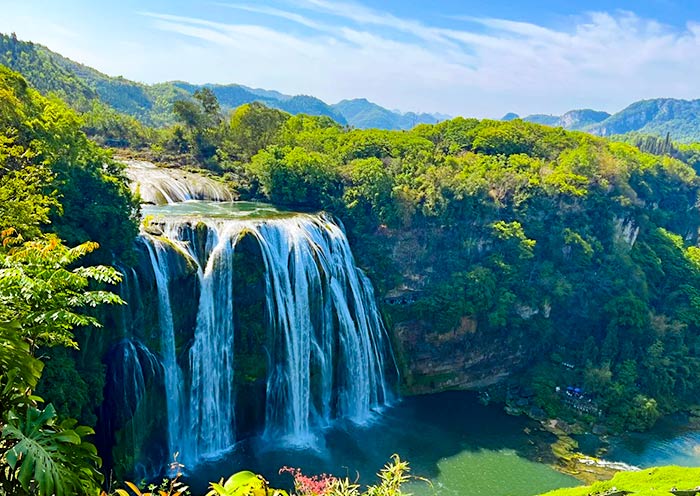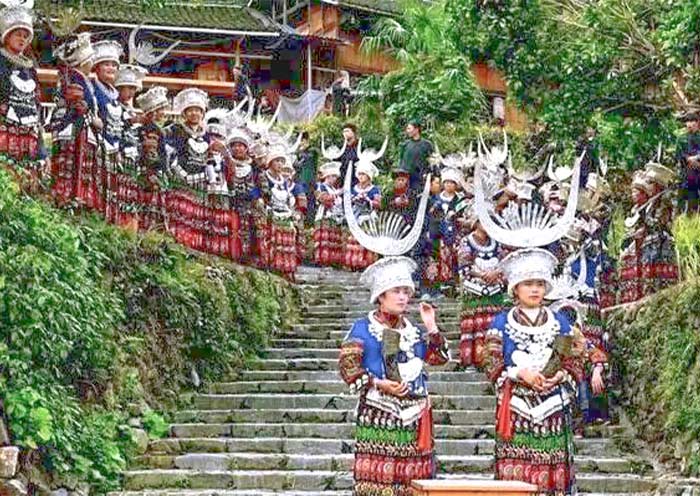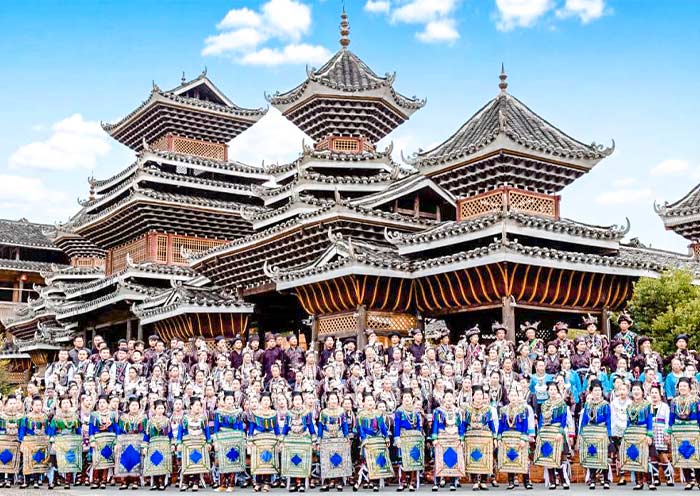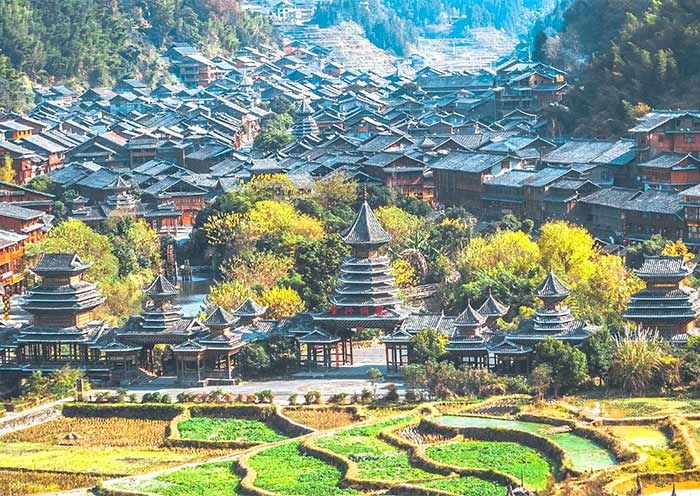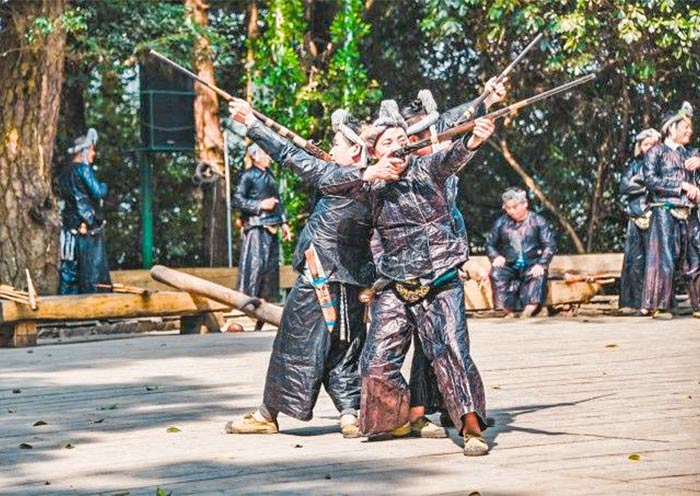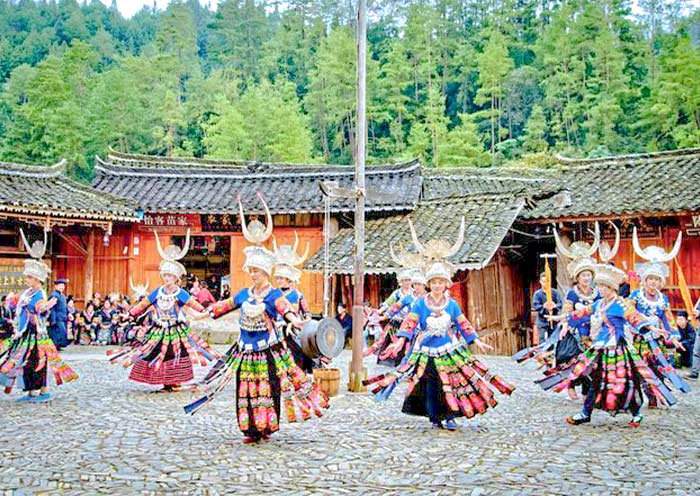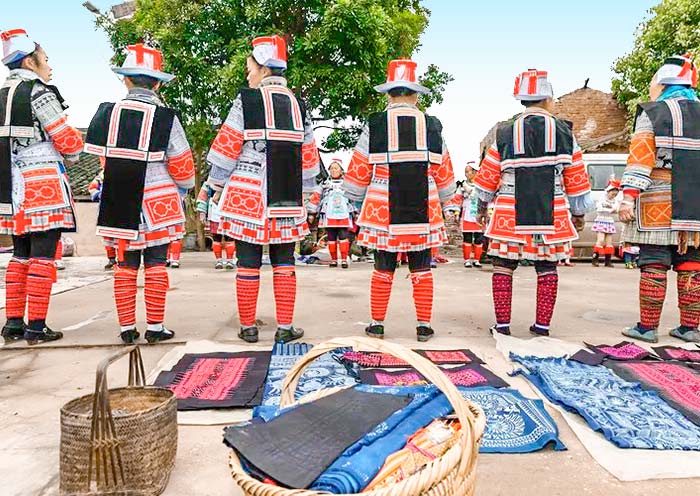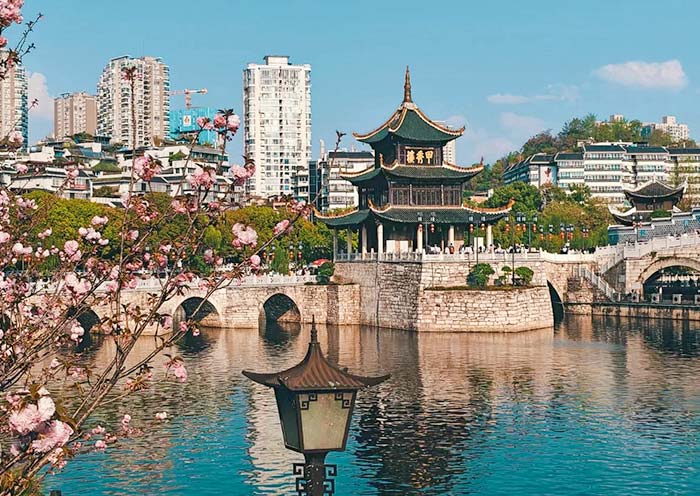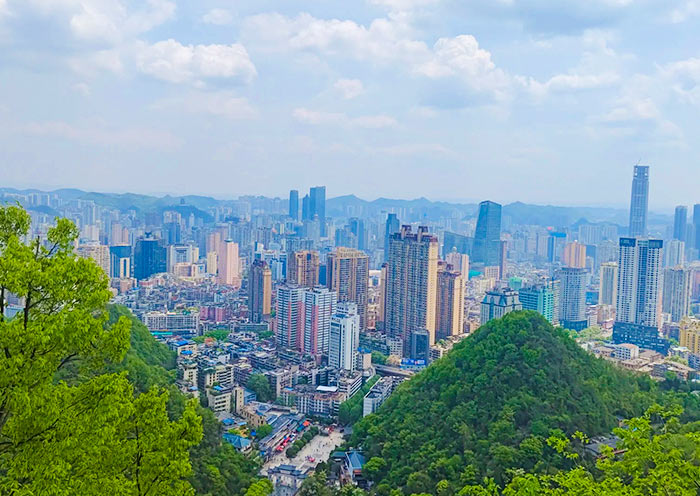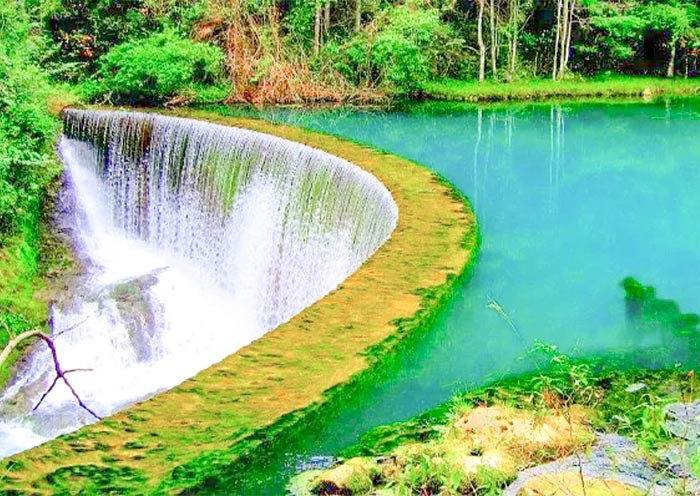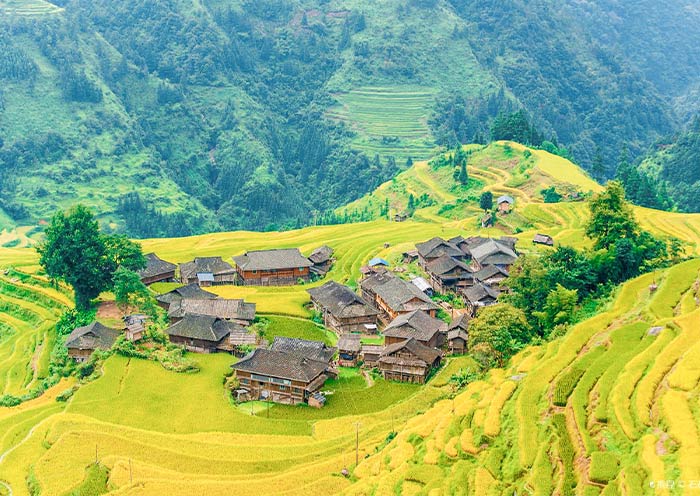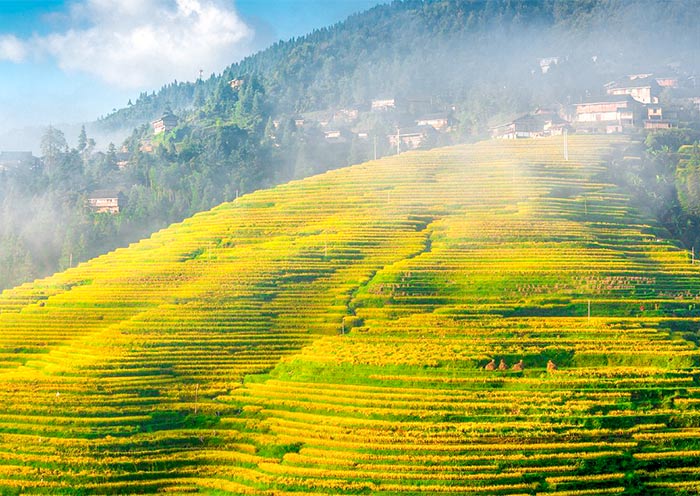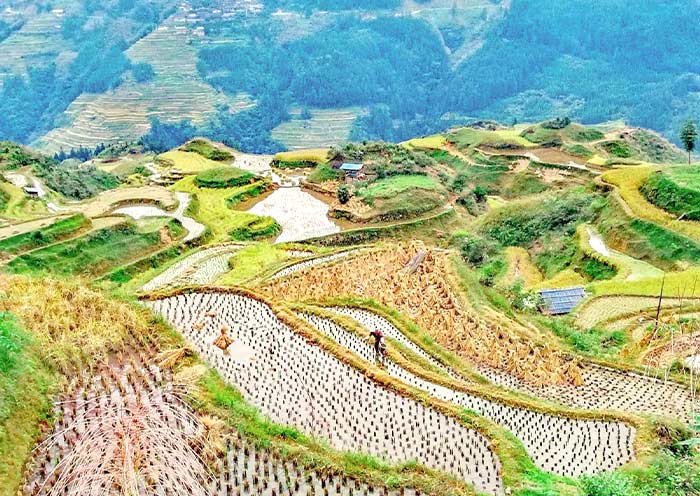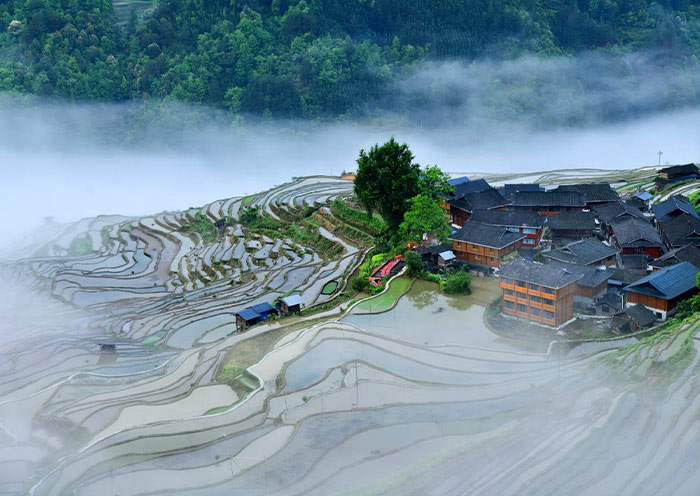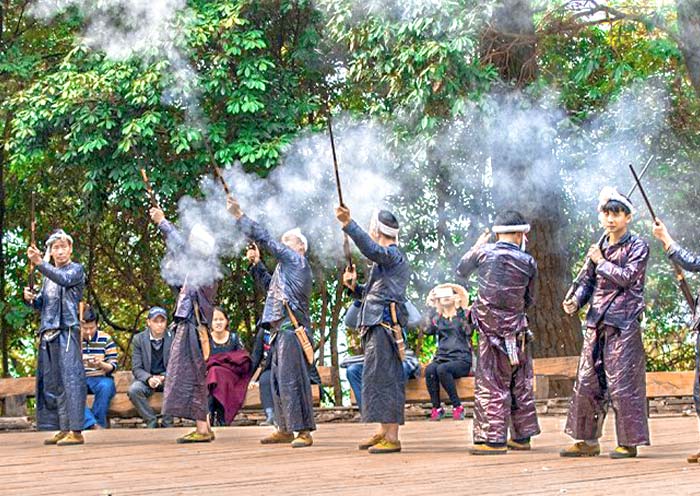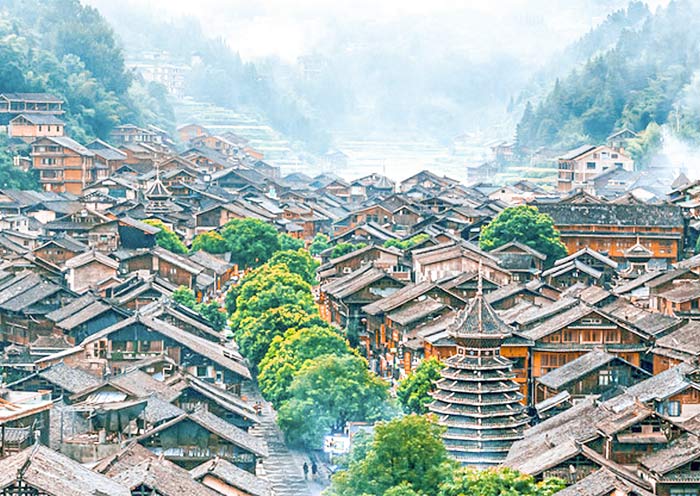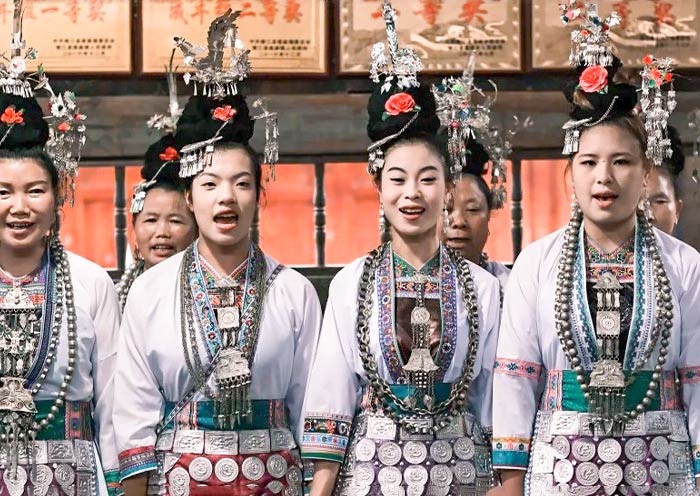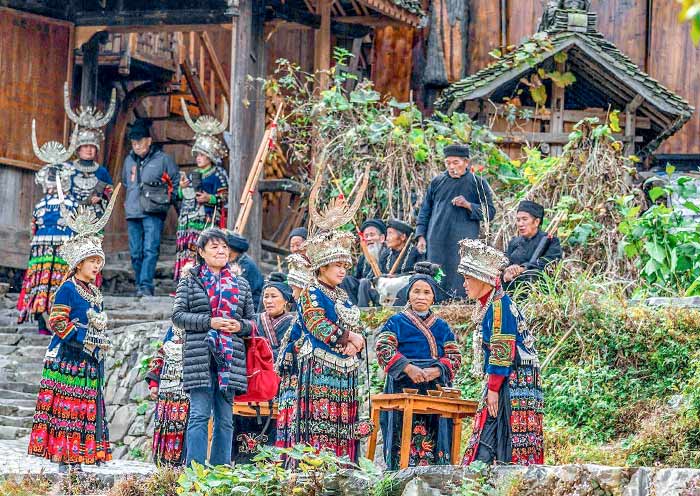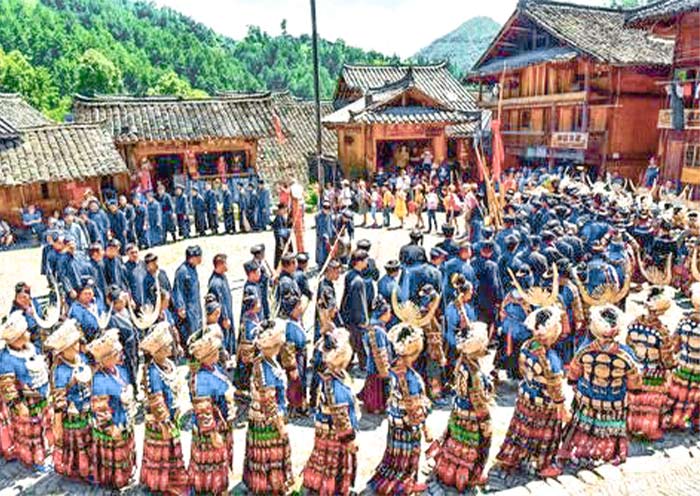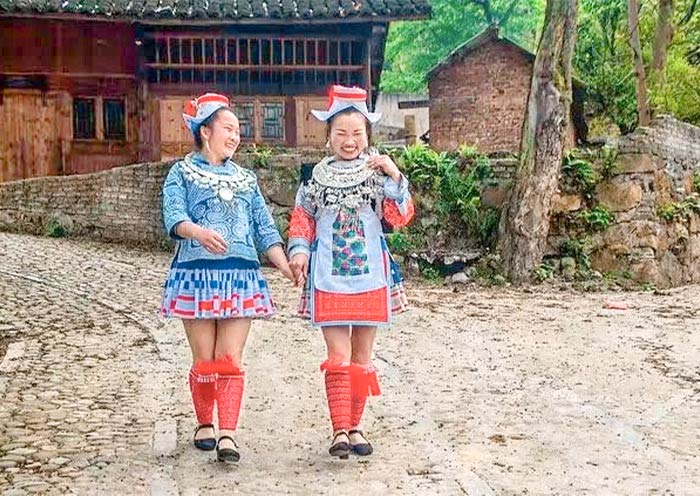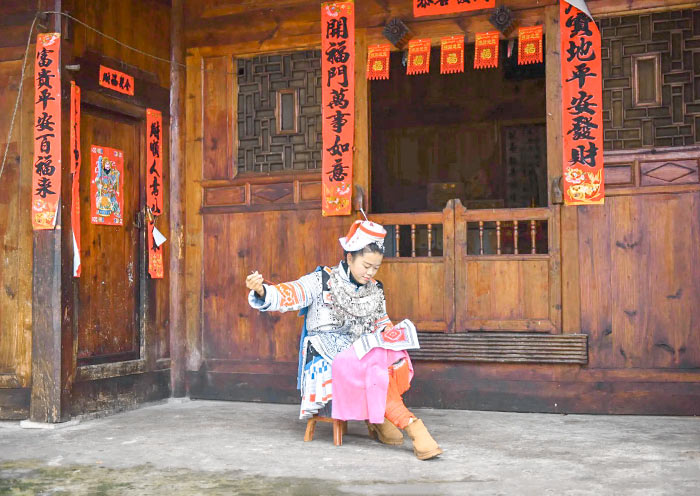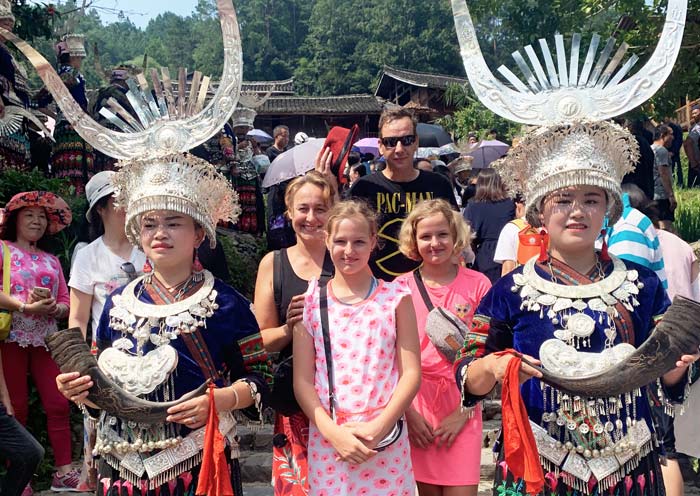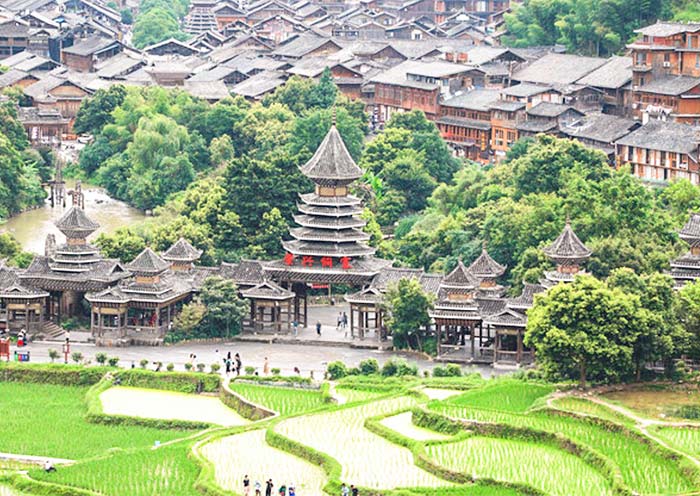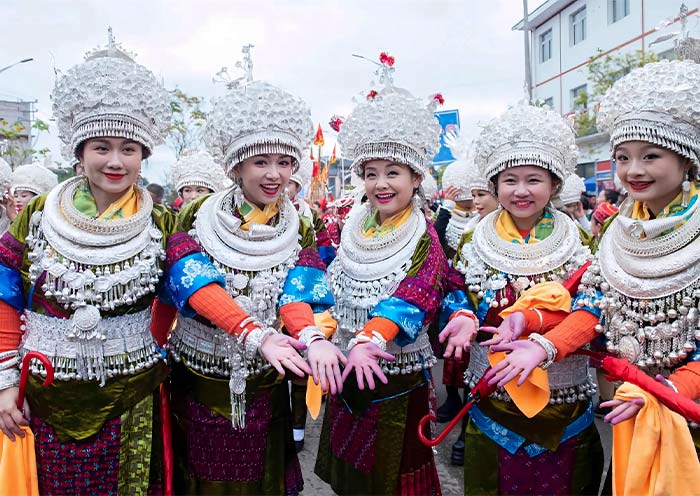In the early morning, as a soft mist blankets the mountains, you will wake up to the serene beauty of Jiabang Rice Terraces. Clouds rise slowly from the valleys, veiling the terraces in a dreamy haze, like a scene from a fairyland. Shrouded in mist, the terraces, stilt houses, and working farmers appear ethereal, fading in and out of view.
After enjoying breakfast, depart from Jiabang and drive toward Zhaoxing. Along the way, you will visit Zhanli Dong Village, Biasha Miao Village, and Zhaoxing Dong Village, immersing yourself in the vibrant traditions of the Dong and Miao ethnic groups.
Your first stop is Zhanli Dong Village (占里侗寨), a legendary and tranquil village where every household has exactly one son and one daughter. Legend has it that there was a female herbalist in Zhanli who used a herb called "Huanhua Grass" (herbal fertility tea) to balance the gender of fetuses. However, Zhanli also has ancestral rules stating that this herb can only be taken by villagers. Don't be disappointed; even if you can't uncover the secret of herbs, you will surely appreciate the peaceful life by the flowing stream near Zhanli Bridge. Also, don't forget to look for the village's "male well" and "female well," which are said to be key medicinal guides for taking "Huanhua Grass."
Next, journey to mysterious Biasha Miao Village (岜沙苗寨), known as "China's Last Gunman Tribe." Stepping through the village gate is like traveling back to an ancient era. The men wear dark blue cloth jackets and straight, wide-legged trousers, with firelocks and machetes hanging from their waists, displaying a heroic spirit. The men here start learning to shoot from a young age; for them, the firelock is both a tool for hunting and a weapon to protect their homes.
Biasha men are distinguished by their "Huge (户棍)" hairstyle, where the surrounding hair is shaved off with a sickle, leaving only a topknot in the center, symbolizing "harmony between heaven, earth, and humanity." Boys' hair is not cut from birth until their coming-of-age ceremony, when elders shave it off with a sickle. It is said that this tradition has been passed down since the time of the legendary tribal leader Chiyou.
Furthermore, the Biasha people have worshipped trees since ancient times, and their grandest sacrificial ritual is the worship of the tree god. In Biasha, when a new life is born, the family will plant a tree in the forest representing that little life; when life ends, people will use this tree that accompanied them throughout their lives to make a coffin for burial, allowing them to rest peacefully.
Finally, drive approximately 1 hour to Zhaoxing Dong Village (肇兴侗寨), known as the "Number One Dong Village." It is one of the largest and most well-preserved Dong villages in China.
Zhaoxing Dong Village is world-renowned for its spectacular drum tower complex. The village is home to over 6,000 residents, all from the Lu family line, divided into five major clans. Each clan forms a “group” or “tuan” - Ren, Yi, Li, Zhi, and Xin - representing the Confucian virtues of benevolence, righteousness, propriety, wisdom, and integrity. Each “tuan” is centered around a drum tower and has its own drum tower, wind-and-rain bridge, and opera stage. The drum towers serve as gathering halls and are viewed as the spiritual and communal hearts of each group.
You can wander through the five "Tuan," exploring each of the five uniquely styled drum towers, and appreciate the wisdom and exquisite architectural skills of the Dong people. Strolling across the wind and rain bridges, with the flowing water and gentle breeze, you will feel as if you are in a beautiful landscape painting. You can also walk up to the village gate viewpoint for a stunning panoramic view over the entire village.
Optional Experience:
Watch a Dong Grand Song performance and listen to this heavenly music, which has been listed by UNESCO as a "Representative Intangible Cultural Heritage of Humanity." These polyphonic songs, sung without instruments, are hauntingly beautiful and deeply moving.
